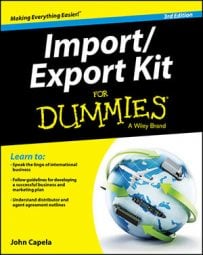

Under the Foreign Corrupt Practices Act (FCPA), it's illegal for a U.S. company to offer, pay, or promise to pay money or anything of value to any foreign official for the purpose of securing or retaining business.
Here's a case study for you: In January 2009, Patrick Caldwell, a former federal employee, was appointed head of sales and marketing for Protective Products of America, Inc. (PPA), a company headquartered in Sunrise, Florida, that sells body armor to federal and state agencies. Soon after his appointment, he was approached to help provide the presidential guard of an African country with such body armor for about $15 million. The offer came from two undercover FBI agents, who were posing as the representatives of an African defense minister in meetings at a Miami hotel and a restaurant in Washington, DC. During the meeting, Caldwell was advised that a 20 percent commission needed to be added onto the price as a payment to the two men for their efforts in securing the order.
Caldwell was told that half of that "commission" would be given to the minister of defense. Caldwell agreed to create two price quotations in connection with the deals, with one quote representing the true cost of the goods and the second quote representing the true cost plus commission. Caldwell also agreed to engage in a "test" deal to show the minister of defense that he would receive the 10 percent bribe.
Caldwell agreed to the commission, and $18,000 was transferred to the account of Protective Products of America for this initial purchase of body-armor plates. On July 16, Caldwell was promoted to CEO. However, he was not the CEO for long, as he was arrested in January 2011.
John Capela has taught marketing, management, and international business courses at St. Joseph's College in New York for 20 years. He is president of CADE International, which provides consulting and training in international business including importing, exporting, licensing, and foreign investment.